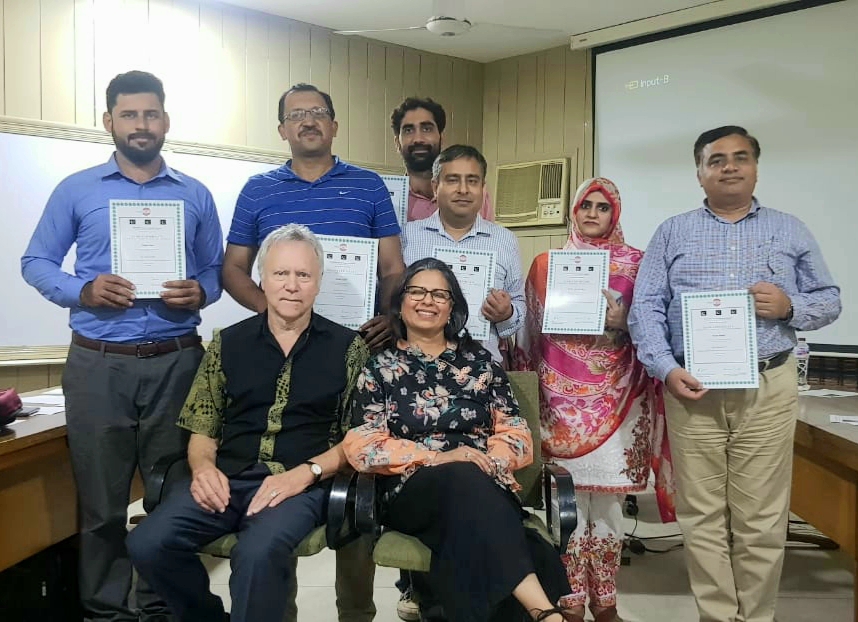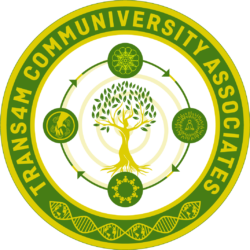
- Home
- CLAD – PAKISTAN 2019
- admin
- 0 Comments
- August 8, 2022


Graduation Ceremony June 2019
Transformation Studies Foundation Program Launched in Pakistan
Transformation Studies co-jointly launched in Pakistan, in collaboration with TRANS4M, Centre for Integral Development, Akhuwat Foundation & Integral Soulidarity Research Academy (iSRA).
A LOCAL-GLOBAL PERSPECTIVE – RELEASING THE PAKISTANI GENE-IUS
Following in the footsteps of our Nigerian TRANS4M associate, Ofure-Pax Integral Research and Development Initiative (OFIRDI), Akhuwat Foundation (Pakistan) in collaboration with Integral Soulidarity Research Academy (iSRA UK) and Trans4m Centre for Integral Development, France, launched a unique Transformation Studies program in Pakistan, in January 2019.
CLAD or Community Learning Activation & Development foundation program, is particularly designed to unlock the local potential individually, working alongside Akhuwat’s key personnel to communally release the Pakistani GENE-ius whereby GENE stands for Grounding, Emergence, Navigation & Effect – a four-worldly catalytic process for societal transformation, intuited by Trans4m co-founders Profs Ronnie Lessem and Alexander Schieffer in 2010.
In this initial program on Community Activation, Learning and Development our aim is, firstly, to lodge development in an individual’s own self-actualisation, in association with others, and secondly, to root such in particular learning and also organisational/societal community, thereby initiating bottom-up development, internally and externally.
COMMUNAL LEARNING IN PRACTICE – CONSTITUTING CIRCLES OF VIRTUOSITY
A group of 18 people, thus, formed the first CLAD cohort at a resort on the outskirts of Lahore, Pakistan. The group consisted of some key representatives from Akhuwat’s various operations such as:

- Akhuwat Professional Development Centre (APDC)
- Parwaaz (Centre for Excellence)
- Akhuwat Human Resource Department
- Akhuwat Clothes Bank
- Akhuwat Human Resource & Development (HRD)
- Akhuwat-NJV group from Karachi
Therein, the real strength of the group lied in the mutuality and convergence in their central moral core – Akhuwat’s philosophy of Mawakhat (Soulidarity). Furthermore, working for the same organisation albeit in different operations provided them an opportunity outside work hours to connect in a relaxed manner. New friendships were forged creating a communal learning ecosystem and mutual support for the work most of these individuals do in their respective capacities and departments.
ACTIVATING THE IMPULSE OF SOLIDARITY
This mutuality thus, necessitated the ‘impulse of solidarity (Mawakhat)’ as the stories shared with each other mostly revolved around how the lives of most of the group members were transformed after adopting the Akhuwat’s philosophy of work which transcends the boundaries of ‘professional work ethics’ and rather becomes an Ibadah (practical worship/prayer). The common theme that emerged was around the ‘joy of giving’ as work became rewarding for all of them.
COMMUNAL LEARNING (CLAD) OUTCOMES – INSTITUTIONALISING THE SPIRIT OF MAWAKHAT
The combined methods of participatory action research/learning and cooperative inquiry used throughout the course of this program facilitated the group members to not only align their ‘inner/endogenous’ with the ‘outer/exogenous’ but also catalysed a communal process of social regeneration in Pakistan’s local context. The emerging common theme, as noticed, was a communal sense of responsibility, further aligning the organisational ‘spirit of Mawakhat’ with self & community explicitly. The ‘inside-out’ method taught to voice group member’s inner & outer calling predicates communal healing bridging the self and organisational divide.
Some themes that emerged as a result of this facilitation are as below:
- Teacher-hood inspired by Prophethood – Naseer Ahmed – Senior Teacher Trainer (APDC)
- From Human Resources to Conscious Evolution: bridging the self and community divide – Atif Tufail – Head of Human Resource Department
- Mawakhat – A Bridge Towards Communal Development – Shahid Safdar – Senior Manager Training
- Institutionalising the Spirit of Mawakhat through a Triple ICO (I-Organisation-Community) model – Farooq Saani – Asst Manager Training & Human Development
- Guardianship of the Society via Service Providing – Neelam Chaudhry & Bilal Azam – Akhuwat Clothes Bank
- Nurturing Free Thinkers through Holistic Development – Tahera Awan – Education Management – NJV School
- Ishq (Supreme Love) as the only driving force and Catalyst – Fatema Huzefa – Academic Head at NJV School



Leave a Comment